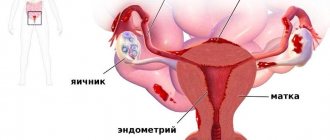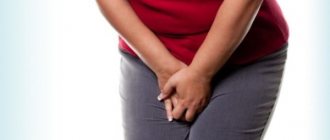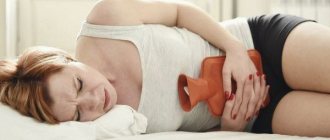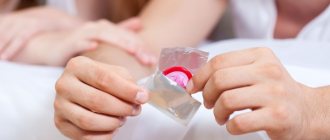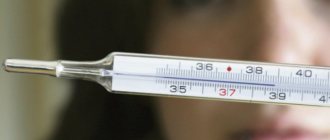Every month, from adolescence to menopause, women experience a process designed by nature called menstruation. Without going into detail about what the so-called “periods” are, it can be noted that for many, the period of menstruation is associated with discomfort, psychological and physical suffering.
There are many signs that herald the approach of your period, and one of them is increased frequency of urination. Before trying to cure an unknown pathology, it would be logical to find the reasons that cause frequent urination before menstruation, and begin solving the problem from there. It is worth noting that dysuric disorder may occur before menstruation, but not be associated with it. Therefore, below are the most common factors that provoke a frequent urge to urinate; they can become the sole or additional cause of bladder problems.
What is menstruation
Menstruation is a physiological process that reflects the state of the reproductive system and readiness for possible fertilization. In this case, the woman produces up to 150 ml of bloody discharge.
The dates for the onset and end of menstruation are presented in the table.
| Menarche | This is the name for menstruation that a girl has had for the first time in her life. The first menstruation often occurs at 11-13 years of age. Minor deviations up or down are acceptable. Additionally, at this time, the teenager’s figure begins to take on more feminine contours: the breasts grow, the buttocks become rounded, and the waist becomes more pronounced. At first, menstruation occurs with significant disruptions. This is due to rapid hormonal changes occurring in the female body. |
| Climax | This term implies a natural change in the body, during which the reproductive function and ovaries decline. The quantitative ratio of hormones changes. The woman begins to actively age. At first, menstruation occurs with long delays, and then disappears completely. The girl will no longer be able to have children. Menopause makes itself felt after 40. Hormone replacement therapy may be required. |
During reproductive age, menstruation disappears only during pregnancy and breastfeeding. Gradually the discharge will appear again.
The duration of the menstrual cycle may vary. Normally it should be 25-35 days. The average is 28 days.
Ovulation occurs in the middle of the cycle. This period is considered fertile. A woman has an increased likelihood of successful fertilization. The mature egg comes out to meet the sperm.
The menstrual cycle is divided into stages
The menstrual cycle has 3 stages:
- follicular;
- ovulatory;
- luteal
It is in the last phase that women most often experience frequent urination.
Hormonal changes and more
Almost all processes in the human body are regulated by hormones. Therefore, any fluctuations in their level invariably affect well-being. In women, hormonal levels change constantly and affect the frequency of urination. This is especially noticeable during pregnancy, as well as when ovarian function begins to fade in the body and a woman enters menopause.
For many representatives of the fair sex, premenstrual syndrome can also be associated with frequent trips to the toilet. The low level of progesterone, which is observed in women during this period of the cycle, promotes increased expulsion of fluid from the body. This means that you have to go to the toilet much more often than usual.
Another reason for frequent urination is taking hormonal medications. But if they are prescribed by a doctor after a thorough examination, then the likelihood of such side effects as delayed menstruation or frequent urination is practically reduced to zero.
Termination of pregnancy, regardless of whether it was performed surgically or with the help of medications, is always a severe shock for a woman’s body. After this, the hormonal system should return to normal for several months. But this is not the only problem - many complications often arise after abortions, including cystitis. With it, urination occurs very often and is associated with painful sensations.
There are a number of factors contributing to the development of cystitis after abortion:
- chronic pathologies of the excretory system;
- latent forms of sexually transmitted diseases;
- blood stagnation in the pelvic organs;
- low tone of the bladder sphincters;
- hypothermia;
- violation of personal hygiene rules.
When a woman urinates frequently for several days after giving birth without experiencing discomfort, this is normal. Thus, excess fluid is removed from the body. But frequent trips to the toilet and only a couple of drops of urine are a reason to consult a doctor. Perhaps inflammation of the urethra or cystitis has begun.
In addition, after childbirth, the tone of the muscles lining the pelvic floor is reduced; it does not exert sufficient pressure on the bladder and urinary tract. Therefore, many women feel discomfort when a certain amount of urine is involuntarily released when sneezing or laughing.
Chronic diseases of the genitourinary organs in women, including urethritis, pyelonephritis, adnexitis and a number of others, can cause frequent urge to urinate. In order to accurately establish the cause of the disease and cure it, it is necessary to consult a specialist and undergo an examination.
How does premenstrual syndrome manifest?
The most common reason for frequent urge to go to the toilet is the onset of premenstrual syndrome. This is a physiological process that is caused by hormone fluctuations and the body’s preparation for the upcoming endometrial detachment.
PMS does not require treatment. In some women, the syndrome is practically asymptomatic. How you feel before menstruation varies from person to person and often depends on hereditary predisposition.
Approximately 80% of women experience severe premenstrual syndrome. A woman experiences the following symptoms:
- frequent urination;
- severe irritability;
With PMS, the lower abdomen often hurts
- lower abdominal pain;
- increased sensitivity in the mammary gland;
- swelling in the body due to excess fluid retention;
- headache;
- nausea;
- surges in blood pressure.
You should consult a doctor if there were no negative symptoms before your period or if the signs of PMS are unbearable. However, it is often enough to reconsider your lifestyle to normalize your well-being.
Treating Frequent Urination
If, based on the results of the examination, a specific diagnosis is made that provokes frequent urination before menstruation, then the patient receives prescriptions from the doctor for the treatment of the identified pathology. As a rule, it directly depends on the causes of the symptom. It can be medicinal, surgical and complex.
As a rule, antibacterial therapy with antibiotics is used to treat inflammatory or gynecological diseases. If the provoking factor is a tumor, then treatment most often begins with surgery. If the symptom is caused by hormonal disorders, corrective treatment with hormonal drugs is used.
Could there be pregnancy?
If you experience frequent urination, pregnancy cannot be ruled out. Sometimes this is the first sign of successful fertilization. Only over time will additional symptoms arise. You should definitely use the test if your period does not come on time.
Pregnancy can be recognized by the following symptoms:
- delayed menstruation;
- change in taste preferences;
- breast enlargement;
- constant fatigue;
Frequent urination may indicate pregnancy
- nausea and vomiting;
- lack of appetite or, conversely, its increase;
- abdominal discomfort;
- scanty bleeding.
The number of urinations increases, despite the amount of fluid consumed. The woman experiences constant drowsiness. Performance is reduced regardless of the amount of work performed.
Early tests may be inconclusive. If you experience frequent urges and additional symptoms, consult your doctor for a gynecological examination and blood sampling for hCG.
Causes
Increased urine output in the run-up to your period should not be a cause for concern. Each female body is individual, therefore, during menstruation, hormonal changes have different manifestations. Most often they go unnoticed and only in some cases lead to increased urination.
Let's define the conditions that lead to the appearance of this symptom before the onset of menstruation:
- pregnancy;
- stressful conditions;
- disturbances in the functioning of the cardiovascular system;
- hormonal imbalance in a woman’s body (menopause, diabetes);
- premenstrual syndrome;
- diseases of the genitourinary system;
- pathologies of the urinary system (pyelonephritis, urethritis, cystitis, etc.);
- endocrine pathologies.
Before sounding the alarm, it is necessary to trace the connection between dysuric disorder and the appearance of menstruation, and then (if necessary) take any action.
What diseases of the urinary system can be
There is a high probability of the presence of diseases of the urinary system. Often pathologies appear just before menstruation. Using diagnostics, the doctor confirms or excludes the possibility of:
- pyelonephritis;
- cystitis;
- urethritis;
- urolithiasis.
The cause may be inflammation of the bladder.
There is blood or pus in the urine. When urinating, there is pain and burning. The condition causes significant discomfort. Additionally, swelling is observed.
How to help yourself
Diarrhea can appear for many reasons, but if it is caused not by disease, but by physiology, following simple recommendations will make life much easier:
- On the eve of your period, you should not try exotic dishes and drinks. It is better to exclude fried, fermented milk, fresh vegetables and fruits from the diet for a while: such food causes increased gas formation and relaxes the intestines;
- Add foods that have a strengthening effect to the menu. Rice and oatmeal, wholemeal bread, croutons, cottage cheese - all this will help to cope with diarrhea naturally. It is better to cook porridge in water, without milk. It would be good to replace regular tea with special decoctions of medicinal herbs;
- Eat often, but little by little. Let the intestines rest a little, it’s not easy for it right now;
- All food consumed must be fresh and of high quality. Products of animal origin must be processed thermally, vegetables and fruits must be washed;
- If diarrhea has already begun, you need to drink plenty of fluids to restore the water-salt balance: water, teas, jelly. It is not recommended to consume juices and compotes;
If the above measures have no effect, you need to resort to mild medications. A couple of tablets of No-shpa or Imodium will help relieve unpleasant symptoms. You can also turn to an old proven remedy - activated carbon. They drink it at the rate of 1 tablet per 10 kg of person’s weight.
Often, diarrhea or constipation before menstruation is closely related to PMS and is caused by a nervous disorder. Then the salvation will be tinctures of motherwort or valerian, taken in the evening, and sound, healthy sleep. You don’t need to drink a lot, otherwise you risk oversleeping in the morning before work. If possible, you should avoid stress these days, because as you know, all diseases are caused by nerves.
Why would diarrhea appear before menstruation? Its presence complicates life, preventing you from working normally, doing household chores, or going out for a long time. It's even worse if the diarrhea is caused by an illness. On the eve of critical days, it is important to closely monitor any health changes that occur.
What other diseases could there be?
Rule out diseases of the endocrine system, for example, diabetes mellitus, which is manifested by the following symptoms:
- frequent visits to the toilet;
- passing excessive amounts of urine;
- obvious dry mouth;
- frequent desire to drink;
- jumps in body weight.
There is also a possibility of gynecological diseases. In this case, the woman complains of irregularities in the menstrual cycle, discomfort in the lower abdomen and pain during sexual intercourse. Menstruation is excessively heavy or scanty. Itching and burning appear in the genital area. Natural discharge has an unpleasant odor.
This video will help you learn about diseases that cause frequent urination:
Your period only comes when you go to the toilet
Each representative of the fair sex has its own characteristics of menstruation. Many people have noticed that in recent days, the secretion flow is a little more abundant when you go to the toilet. This is normal at the end of monthly discharge, when almost the entire endometrium has been renewed, and its remnants are released during the efforts made by the woman to empty the urinary tract or intestines.
But it is considered an anomaly when menstruation occurs exclusively during defecation or urination, and in the normal state, bleeding from the vagina stops. The following factors can provoke this phenomenon:
- weak uterine tone. The organ contracts poorly, which is why menstrual flow is retained in its cavity. This can be caused by a lack of hormones and a sudden change in your usual lifestyle;
- incorrect placement of the uterus, its bend;
- cervical stenosis. Pathological narrowing of the cervical canal, which can be congenital and appears after surgical interventions;
- normal and ectopic pregnancy. Bloody spotting during bowel movements or bowel movements can be caused by a lack of hormones necessary to maintain pregnancy.
In a physically healthy woman, menstrual flow comes out without additional effort, and during urination and defecation, its intensity may increase slightly.
Internal genitalia of a woman
The internal genital organs consist of:
- The vagina is very elastic and long, about 12 centimeters, connected to the cervix. Its walls consist of three layers of fabric.
- The uterus, which is about the size of a fist and is shaped like a pear. It consists of three sections: the neck, body and isthmus. A special canal passes through the cervix, the cervical canal, which contains mucus that protects the organ from bacteria.
- The uterine appendages are the fallopian tubes, through which the egg enters the uterine cavity.
- The ovaries are a paired organ. This is where eggs grow and develop, and female sex hormones are produced here. Namely estrogen and progesterone.

